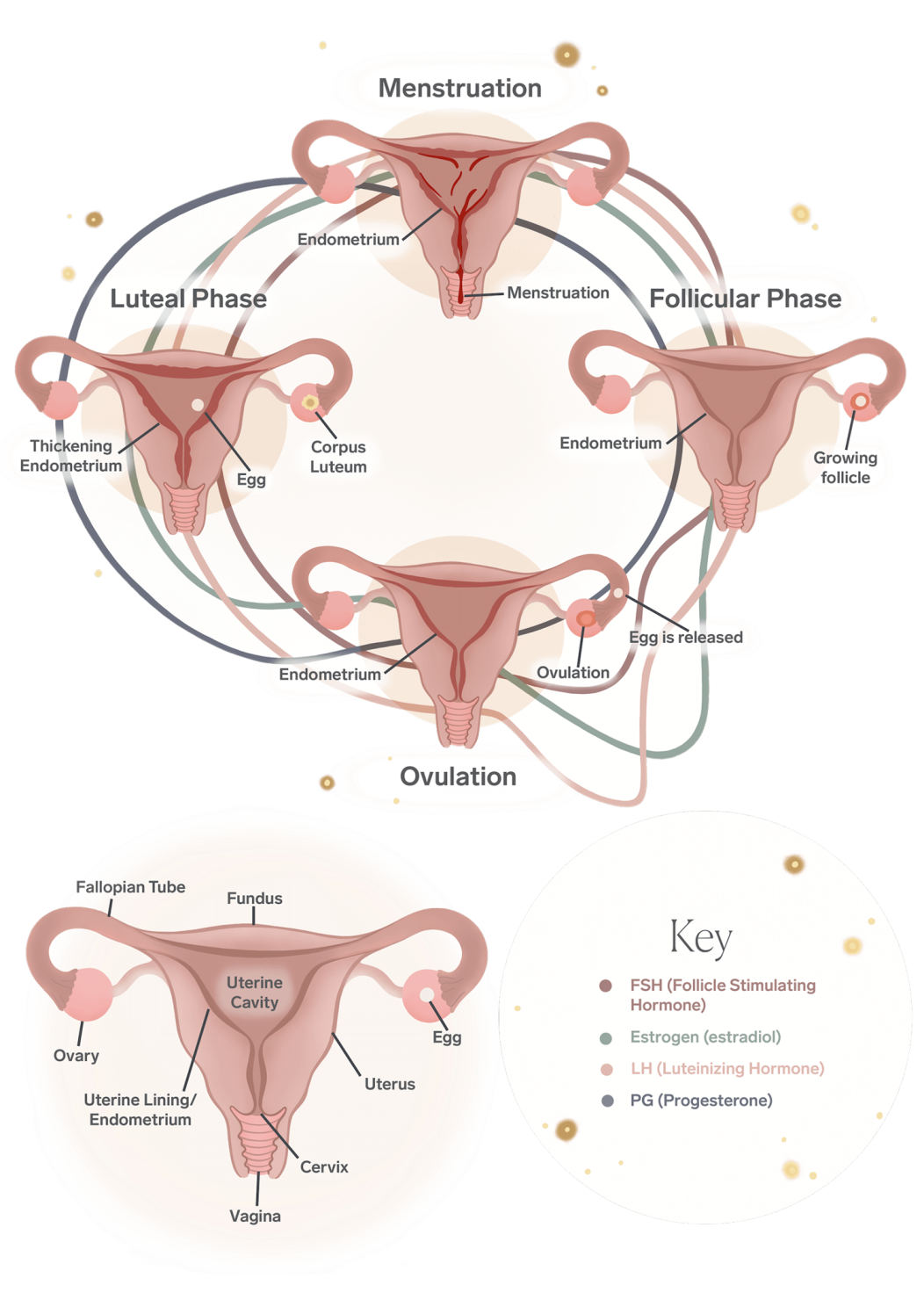What are the phases of the menstrual cycle?
How we talk about phases at Hummingway and how it can help you understand your cycle.
You may have heard the term 'phases' used when talking about your menstrual cycle. Some schools of thought divide cycles into four phases. Here at Hummingway, we talk about your cycle as two phases alongside two key moments.
This is because your period is part of the first phase, kicking off the whole cycle, and ovulation is the dividing point in between the two phases. The stages of a menstrual cycle are menstruation, follicular phase, ovulation and luteal phase.

Just a reminder that although many refer to menstrual cycles re-occurring every month, it doesn't happen like clockwork. It's still typical to have between nine and 15 cycles per year. Not everyone will have a cycle that lasts 28-31 days - and a huge PSA for anyone who has a cycle: there is no such thing as 'normal.’
Phase One
The first part of your cycle is called the follicular phase. During this phase, the pituitary gland is sent a message to produce follicle stimulating hormone (FSH), causing estrogen levels to rise. This stimulates follicle growth in the ovaries.
Another Main Event
Ovulation is the second key moment in your cycle. It marks the dividing point between the follicular and luteal phase, and typically occurs 10-16 days before your period starts. Ovulation is when an egg is released from the growing follicle in your ovary. Don't get us wrong when we say 'moment'. It's how we at Hummingway refer to processes in our bodies that aren't necessarily momentary, but are moments we can work with and learn to understand more.
Phase Two
The luteal phase is the second part of your cycle, and lasts between ovulation and menstruation (your two main events). The egg that was released during ovulation will then travel down the fallopian tube towards the uterus. It will only be viable for 12-24 hours, and if it’s not fertilized by sperm, it will break down.
Read The Zoom In: Luteal Phase
Hormone levels during each menstrual phase can vary and be unpredictable. Hormone imbalance from estrogen, luteinizing hormone, progesterone, follicle stimulating hormone, and other hormones can occur. Learning how to track your menstrual cycle can be useful in understanding how your cycle works, any potential hormone imbalance or changes associated, or how to increase your chances of pregnancy during the ovulation phase, for example.
All of these stages, phases, and events play a role in understanding your body, from high progesterone levels to low estrogen levels, menstruation to ovulation. So, learning about your own unique body is important when and if abnormalities occur.
Your hormones can be complex and unpredictable. That’s why we’re here, on The Regular, to do what’s long overdue - to demystify what’s going on with our reproductive systems, our hormones and our whole cycle.
We’re here to support your day-to-day queries serving useful content that is uncomplicated and unbiased. No topic is too complicated or too specific for us to address/focus on.